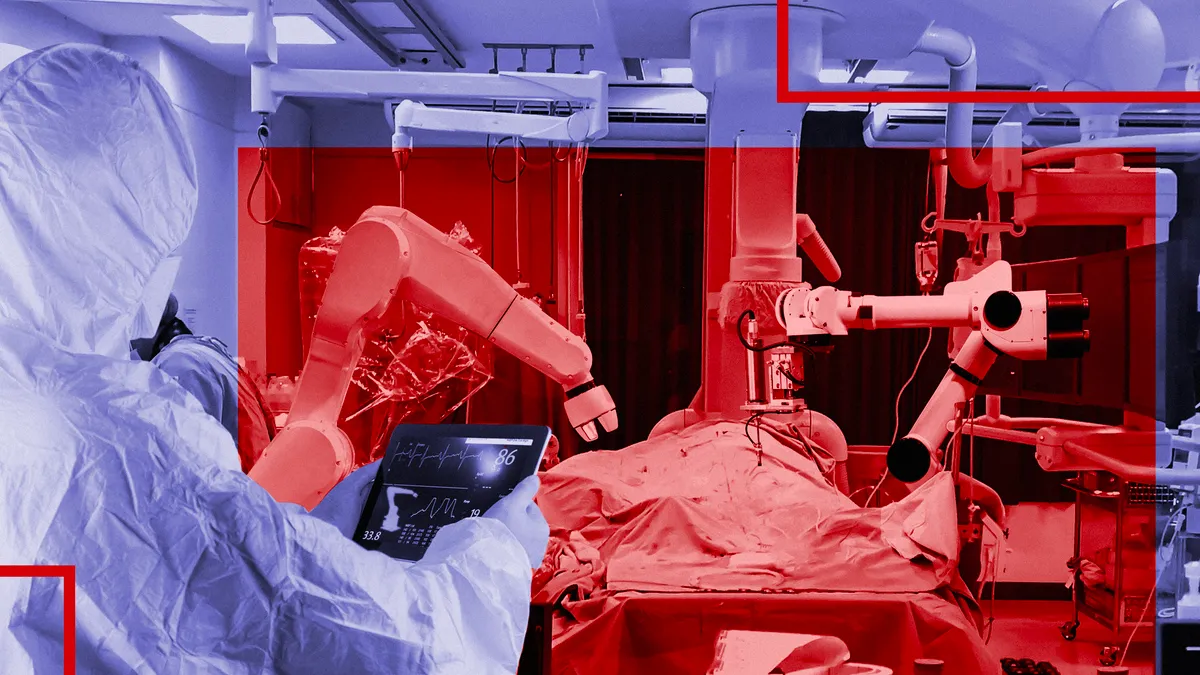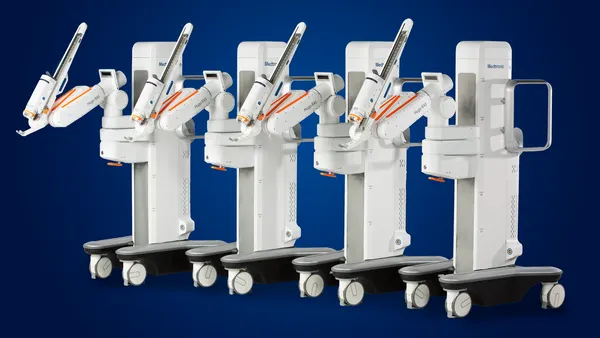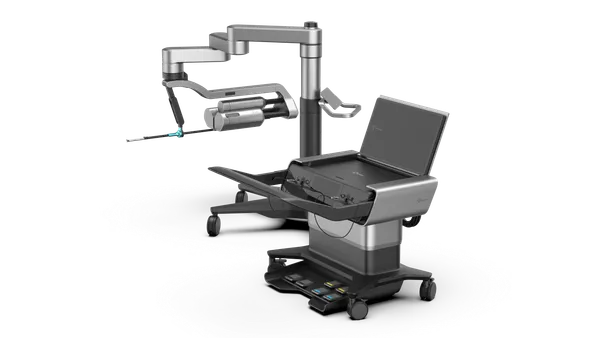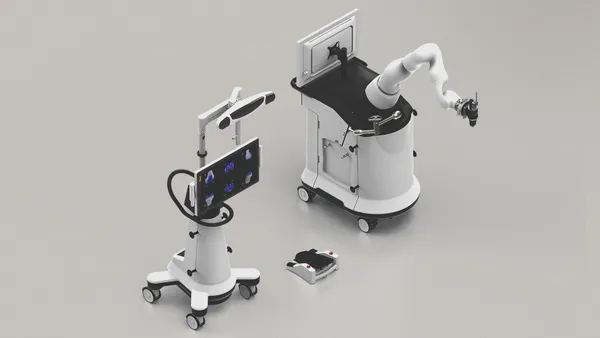Dive Brief:
- A new meta-analysis comparing robot-assisted abdominal pelvic surgery with laparoscopy, open surgery, or both, finds that robotic platforms are costly and result in longer operative duration than laparoscopy, but with no obvious difference versus open surgery in terms of the quality of evidence and outcomes.
- The analysis pubilshed in the Annals of Internal Medicine, which includes 50 studies with 4,898 patients, looked at randomized controlled trials from inception to April 2021 concluding that "there is currently no clear advantage with existing robotic platforms." Researchers noted, however, that "with refinement, competition, and cost reduction, future versions have the potential to improve clinical outcomes without the existing disadvantages."
- Open abdominal surgery is performed through large incisions, while laparoscopy involves minimally-invasive surgery with a few small incisions. Robotic platforms such as Intuitive Surgical's da Vinci system were designed to facilitate surgery using a minimally invasive approach. However, in a potential blow to Intuitive and others, the meta-analysis finds no distinct advantage for robots. The company did not return a request for comment by the time of publication.
Dive Insight:
The systematic review of all randomized controlled trials in abdominopelvic surgery is a sobering assessment of Intuitive Surgical's da Vinci system, which was approved by the FDA more than 20 years ago and is used in gynecologic, gastrointestinal and urologic procedures.
While the meta-analysis found "no obvious difference" in the operative time of robots versus open surgery, a disadvantage found with robotics platforms is longer operative times versus laparoscopic surgery.
Intuitive Surgical's own safety information acknowledges that the among the risks of using its da Vinci system are longer operative times and the need for additional or larger incision sites. The company admits that "a longer operative time, a longer time under anesthesia" could potentially lead to increased complications.
The meta-analysis reports that "of the 39 studies that reported incidence of [surgical] complications, 4 (10%) showed fewer complications with robot-assisted surgery." The authors also note that the majority of studies in their analysis "showed no difference in intraoperative complications, conversion rates, and long-term outcomes."
With robots offering no real advantages over conventional or laparoscopic surgery when it comes to primarily gynecologic, gastrointestinal and urologic procedures, the meta-analysis seems to suggest corporate sway as a reason this costly technology is being widely used to perform these surgeries.
"Use of robot-assisted surgery has increased dramatically since its advent in the 1980s, and nearly all surgical subspecialties have adopted it," the study's authors note, noting that among published literature on robotic surgery "two-thirds of articles have authors who received speaking fees, consulting fees, or honoraria."
Intuitive's da Vinci website lists applications for robotic-assisted abdominal procedures, including: bariatric surgery, gallbladder surgery inguinal hernia repair, ventral hernia repair, acid reflux disease surgery, stomach surgery, pancreas surgery, as well as small bowel and spleen surgeries.













